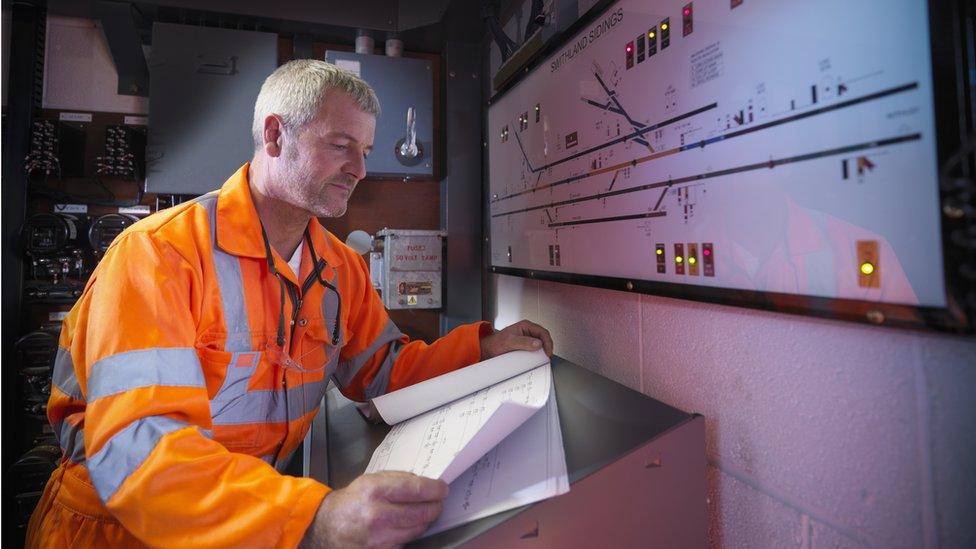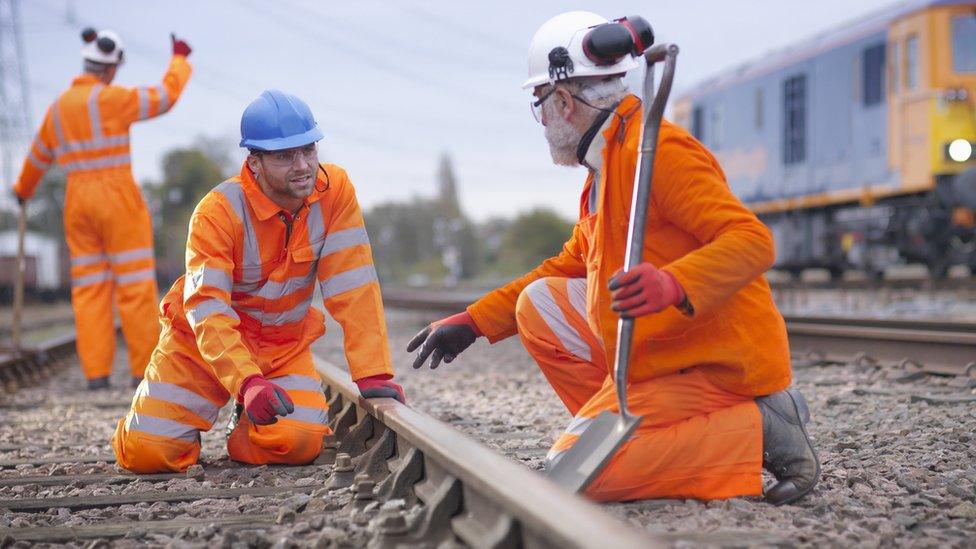Rail strikes: Thousands more workers to vote on action
- Published

TSSA members at NR work in operational, control, management and safety critical roles on rail services across Britain
Thousands more railway workers will vote on whether to go on strikes which threaten travel chaos this summer.
The Transport Salaried Staffs Association (TSSA) plans to ballot more than 6,000 staff at Network Rail (NR).
It is part of a dispute over pay, conditions and job security. Other rail unions will strike next week in what is the biggest walkout in three decades.
A Department for Transport spokesman said strikes should be a last resort and urged TSSA to reconsider.
Network Rail said: "Now is not for time for the TSSA to be jumping on the RMT strike bandwagon."
Members of the Rail, Maritime and Transport (RMT) union at NR and 13 train operators will go on strike for three days from 21 June.
The RMT and Unite are also holding a one-day strike on the London Underground on the same day as the first rail strike, in a separate row over jobs and pay.
Travel misery
Train strikes, cancelled flights and record-breaking petrol prices have thrown getaway plans into disarray and threaten a summer of travel misery.
The TSSA has previously announced strike ballots among its members at four rail companies - Avanti West Coast, CrossCountry, East Midlands and West Midlands Trains.
Meanwhile, members of the drivers union Aslef are also striking later this month at Hull Trains, Greater Anglia and Croydon Tramlink.
TSSA members at NR work in operational, control, management and safety critical roles on rail services across Britain.
They are being asked to cast two votes - one on strike action and another on action short of a strike. The ballot opens on 20 June and closes on 11 July.
In the event of a yes vote, strike action could be held from 25 July.
'Summer of discontent'
The TSSA is demanding a guarantee of no compulsory redundancies for 2022, no unagreed changes to terms and conditions, and a pay increase which reflects the rising cost of living.
It said NR staff last had a pay rise between two and three years ago, although it varies between grades, and also worked throughout the coronavirus pandemic as key workers.
TSSA general secretary Manuel Cortes said: "We could be seeing a summer of discontent across our railways if Network Rail don't see sense and come to the table to face the concerns of their staff."
He added Network Rail only responded to the union's requests for pay talks, made before Christmas, when it moved the issue to dispute in April.
'No-strings pay offer'
But a spokesman for Network Rail said positive pay talks were in full swing with a 'no-strings' pay offer of 2.5% on the table with the potential for more if targets were hit.
A Department for Transport spokesman said it was "hugely disappointing and premature that the TSSA is balloting for industrial action when talks have only just begun".
He added: "Train travel for millions more people is now a choice, not a necessity. Strikes stop our customers choosing rail, and they might never return.
He urged the TSSA to reconsider and go to industry talks in a bid to find a solution for workers, passengers and taxpayers.
- Published15 June 2022

- Published7 June 2022
